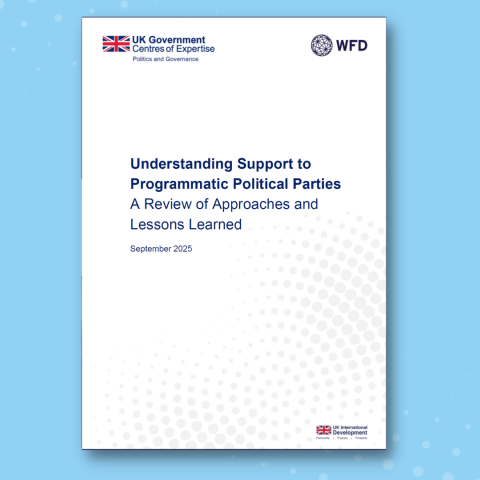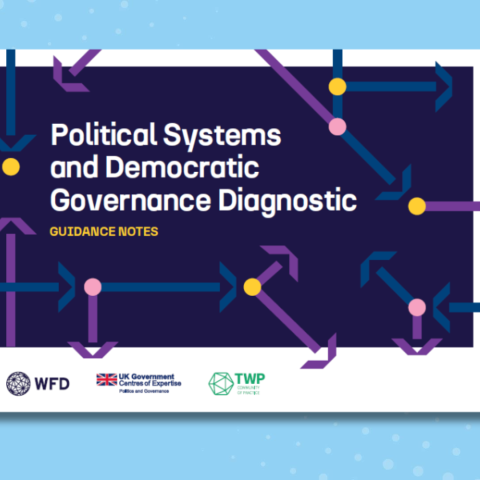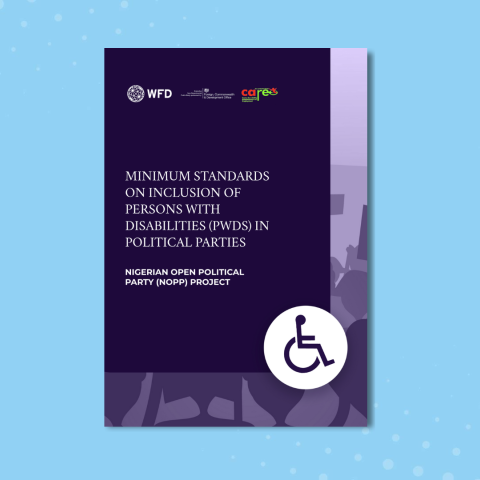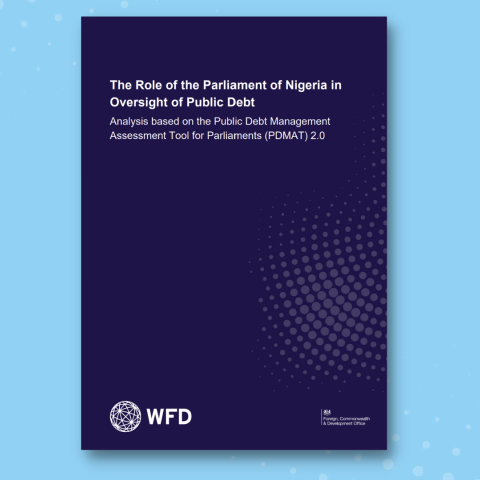The overarching argument of this paper is that parliamentary digital transformation is a relatively underfunded area of work, but a vitally important one in achieving the very common overarching goals of open, accountable, inclusive and participative government. Improvements in how parliamentary digital capacity building can be done better are possible with better strategy, funding and cooperation, and when parliaments are enthusiastic and willing to take the opportunities offered to them to improve themselves.
Now more than ever, digital transformation has become essential for parliaments. Such transformation can have a significant impact in making parliaments more transparent and accountable and can enable them to leverage greater public interest and engagement in the legislative and electoral processes.
Good external digital engagement requires parliaments to review their own internal digital structures, assess where development and investment are needed, and how digital improvement will assist in achieving their goals. Differential priorities in the needs of the parliament or societal actors can form a guide, according to which specific areas for digital development might be prioritised. These steps require long-term investment, which should go in parallel with the digital transformation of the Executive. However, because a country’s digital transformation is primarily the preserve of the Executive, it can bypass the legislature and may be almost disproportionately influenced by the ruling party. Uneven digital transformation between public bodies and the legislature may weaken the profile and legitimacy of the legislature itself. Furthermore, governments that effectively restrict digital development within the legislature are essentially restricting democratic integrity.
Besides the long-term process of building and developing infrastructure, short-term pilot projects can be useful to test approaches and begin building the digital infrastructure of the future. Properly targeted funding, to achieve specified digital transformation goals, agreed in collaboration with the development agencies operating in target areas, can yield significant dividends in improving the digital democracy ecosystem. This approach can neutralise harmful, short-termist and wasteful approaches to digital deficiency, and remove the ability of the more unscrupulous parliaments to play development agencies off against each other to leverage greater rewards or resources.
Digital transformation of parliaments requires better strategy, funding and cooperation on the part of donors and implementers as parliaments are enthusiastic and willing to take the opportunities offered by digitalisation.
Header photo: Jessica Taylor / UK Parliament
What's it all about?
Report authors Julia Keutgen and Rebecca Rumbol discuss their report and its key arguments

This technical report will be of particular value to practitioners working on democratic assistance and the development of programme-based political parties.
In many contexts, political parties do not compete primarily on the basis of distinct and credible policy platforms. Rather, they mainly appeal to voters by highlighting the personal qualities of party leaders, engaging in clientelism, or activating identity-based social cleavages. These forms of political competition are often associated with weaker service provision, fragility, and political violence. Therefore, supporting the development of programmatic political parties – that is, political parties which try to appeal to voters on the basis of a clear set of realistic policy positions – is often a priority for local and international partners. This report provides an overview of some of the common approaches that international partners have taken to supporting the development of programmatic parties, together with some of the lessons that have been learned from these initiatives.

Democratic governance in the world is in a precarious state.
The international community cannot be a bystander as autocratic regimes work together to challenge the international order, weaken agreed international norms, including on human rights, and actively undermine democratic governance.
International actors have a critical role to play in helping countries counter democratic erosion and strengthen democratic governance. This is not about imposing Western liberal democracy. It is about understanding and supporting locally led change which is appropriate to the context.
This diagnostic is designed to help international organisations work out how.
The tool does not aim to set out a list of (unrealistic) expectations of what an organisation or another country ‘must’ or ‘should’ do. Nothing is mandatory. It can be adapted to suit any organisation, in any region or context. It can be applied to authoritarian contexts, situations where democratic governance is eroding, countries in conflict, as well as ‘bright spots’ where there are opportunities for political renewal.
The process of using this guide matters as much as the outcome, both to bring people together to forge a common understanding of risks and opportunities, and to agree a plan for how your organisation will adapt what it is doing to support democratic governance more effectively.
The PSDG Diagnostic was developed by the Politics and Governance Centre of Expertise, in collaboration with the Thinking and Working Politically Community of Practice.

In Nigeria, the active participation of all citizens, including Persons with Disabilities (PWDs), is a matter of right as contained in the Discrimination Against Persons with Disabilities (Prohibition) Act (2018) and is crucial for a robust democracy. Despite constituting a significant portion of the population, PWDs often encounter substantial barriers that limit their involvement in political parties and governance. To address these challenges, this document establishes minimum standards for the inclusion of PWDs in the political parties, aiming to enhance accessibility, representation, and compliance with legal frameworks. Through implementing these standards, political parties can play a pivotal role in promoting equality and strengthening democratic processes in Nigeria.
This document is developed through comprehensive methodology including reviews of national and international legal frameworks, best practices from political systems that have successfully integrated PWDs, reports and case studies from disability rights organisations, electoral bodies, and input from stakeholders such as PWD advocacy groups, and political parties. Consequently, these guidelines offer practical recommendations to promote an inclusive political environment. The expected outcomes encompass the establishment of inclusive policy frameworks, practical guidelines for implementation, proposals for legislative amendments, and nationwide awareness campaigns to promote the rights and active participation of PWDs.
When political parties in Nigeria adopt these standards, they can ensure that PWDs are not only represented but also actively participate in decision-making processes, thereby enriching the democratic fabric of the nation.

The Public Debt Management Assessment Tool (PDMAT) 2.0 is an innovative framework developed by Westminster Foundation for Democracy (WFD) to strengthen parliamentary oversight of public debt management worldwide. It is designed to support parliaments in aligning debt management practices with international standards and promoting sustainable fiscal policies. By providing a structured and user-friendly assessment tool, PDMAT 2.0 empowers parliamentarians, parliamentary staff, and oversight bodies to evaluate and improve the transparency, accountability, and sustainability of public debt management.
This PDMAT assessment considers Nigeria’s public debt management practices against international best practices.




